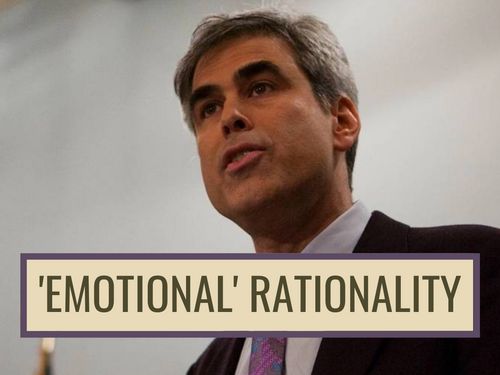Most of your "objective" judgements are emotional
Jul 18, 2021 · 2 mins read
0
Share

Jonathan Haidt is a celebrated American social psychologist. His most cited paper is “Emotional Dog and Its Rational Tail”. Haidt’s central argument is that intuitions, not reason, shape moral judgments. He echoes Humewho said reason always will be slave to emotions & sentiment.
Save
Share
Unlike Hume, an 18th century philosopher, Haidt presents compelling scientific evidence. Here are six reasons why gut instincts and not rational thought determine your moral judgments:
Save
Share
1: A study by Haidt showed that people condemned hypothetical acts of incest, but then were at a loss to come up with good reasons to back their intuitions. This phenomenon of being “morally dumbfounded” suggests instinct, not reason, precedes judgment.
Save
Share
2: First impressions are unreasonably durable. People make up their minds about others after minimal exposure to them, and their first impressions don't change even after a lot of mingling.
Save
Share
3: Principle of least effort. Instincts take up no time, waste very little energy, and provide judgments that are serviceable enough. Reason is both time and energy intensive, and we can't afford to use up a lot of time and energy before each decision.
Save
Share
4: Chameleon effect. People mimic each others' postures, facial expressions, and verbal mannerisms as it promotes cohesion. This "chameleon effect" extends to beliefs too. People will believe something unreasonable if it gains them entrance into a desirable group.
Save
Share
5: The psychopath argument. Decades of research shows that psychopaths understand social norms and can explain coherently the harm they cause others - they just don't care about it. Their reasoning is functional - but crucial emotional modules are down.
Save
Share
6: Proof from brain damage. People with damaged prefrontal cortexes retain the ability to "solve logic problems and even hypothetical moral dilemmas." But they show terrible judgment when making moral decisions. Reason on, gut instinct off.
Save
Share
Putting reason at the core of moral judgment made sense in the past. But, Haidt writes, "Now we know that emotions are not as irrational, that reasoning is not as reliable, and that animals are not as amoral as we thought in the 1970s."
Save
Share
Bottom Line: Believing that one's emotions are controlled by one's reasoning is like believing the tail wags the dog. Our gut instincts and emotions are dominant players in our moral life and judgements, and we ignore their subtle interplay at our peril.
Save
Share
0